 W
WFrançois Marie d'Aboville was a French général de division. He was the father of Augustin Gabriel d'Aboville and Augustin-Marie d'Aboville. He was born in Brest. He fought in the Seven Years' War. He fought in the American Revolutionary War against the British at the Battle of Yorktown (1781). He fought at the Battle of Valmy in the War of the First Coalition. During the Hundred Days of 1815 and after the Bourbon Restoration, he served in the Chamber of Peers. He was a grand officer of the Legion of Honour and a recipient of the Grand Cross of the Order of Saint Louis.
 W
WComte Antoine-François Andréossy was a Franco-Italian nobleman, who served as a French Army artillery general, diplomat and parliamentarian.
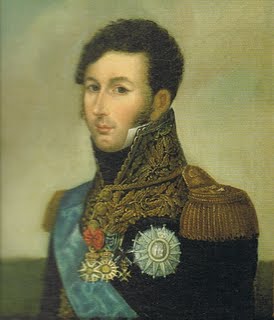 W
WJean-Toussaint Arrighi de Casanova, duc de Padova, was a French diplomat and soldier of the French Revolutionary and Napoleonic Wars. In the late 1840s, Arrighi was also involved in politics and was elected Deputy and then Senator in the French Parliament. He was a second cousin of Napoleon I of France.
 W
WLouis-Mathias, Count de Barral was a French church figure.
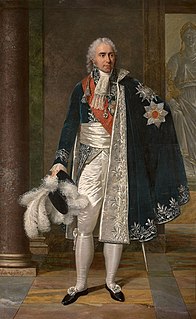 W
WHugues-Bernard Maret, 1st Duke of Bassano, was a French statesman, diplomat and journalist.
 W
WAugustin Daniel Belliard, comte Belliard et de l'Empire was a French general.
 W
WFélix Julien Jean Bigot de Préameneu was one of the four legal authors of the Napoleonic Code written at the request of Napoleon at the beginning of the nineteenth century.
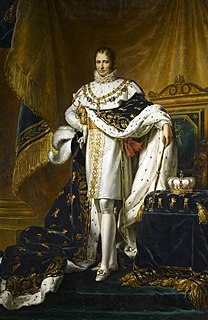 W
WJoseph-Napoléon Bonaparte was a French statesman, lawyer, diplomat and older brother of Napoleon Bonaparte. During the Napoleonic Wars, the latter made him King of Naples (1806–1808), and then King of Spain (1808–1813). After the fall of Napoleon, Joseph styled himself Comte de Survilliers and emigrated to the United States, where he settled near Bordentown, New Jersey on an estate overlooking the Delaware River not far from Philadelphia.
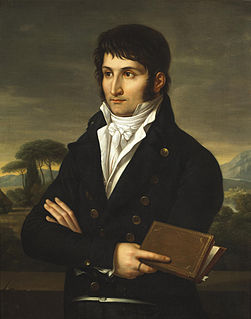 W
WLucien Bonaparte, Prince Français, 1st Prince of Canino and Musignano, the third surviving son of Carlo Bonaparte and his wife Letizia Ramolino, was a French statesman, who served as the final President of the Council of Five Hundred at the end of the French Revolution.
 W
WGuillaume Marie-Anne Brune, 1st Count Brune was a French military commander, Marshal of the Empire, and political figure who served during the French Revolutionary Wars and the Napoleonic Wars.
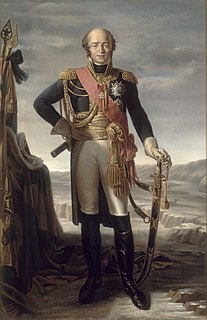 W
WLouis-Nicolas d'Avout, better known as Davout, 1st Duke of Auerstaedt, 1st Prince of Eckmühl, was a French military commander and Marshal of the Empire who served during both the French Revolutionary Wars and the Napoleonic Wars. His talent for war, along with his reputation as a stern disciplinarian, earned him the nickname "The Iron Marshal". He is ranked along with Marshals André Masséna and Jean Lannes as one of Napoleon's finest commanders. His loyalty and obedience to Napoleon were absolute. During his lifetime, Davout's name was commonly spelled Davoust - this spelling appears on the Arc de Triomphe and in much of the correspondence between Napoleon and his generals.
 W
WDenis Decrès,, was an officer of the French Navy and count, later duke of the First Empire.
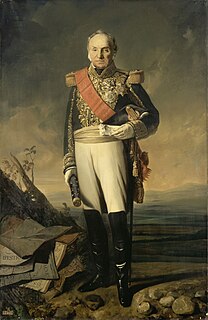 W
WJean-Baptiste Drouet, Comte d'Erlon was a Marshal of France and a soldier in the Grande Armée during the Napoleonic Wars. He notably commanded the I Corps of the Armée du Nord at the battle of Waterloo.
 W
WMarshal Rémy Joseph Isidore Exelmans, 1st Comte Exelmans was a distinguished French soldier of the Revolutionary and Napoleonic Wars, as well as a political figure of the following period.
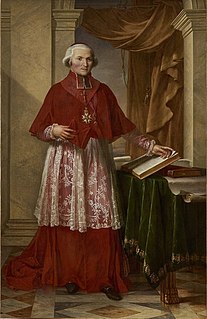 W
WJoseph Fesch, Prince of France was a French cardinal and diplomat, Prince of France and a member of the Imperial House of the First French Empire, Peer of France, Roman Prince, and the half-uncle of Napoleon Bonaparte. He was also one of the most famous art collectors of his period, remembered for having established the Musée Fesch in Ajaccio, which remains one of the most important Napoleonic collections of art.
 W
WAuguste-Charles-Joseph de Flahaut de La Billarderie, comte de Flahaut was a French general during the Napoleonic Wars, a statesman, and late in life French ambassador to the Court of St James's.
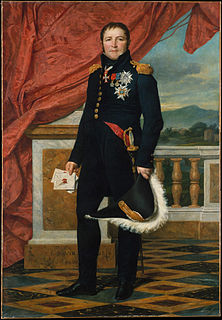 W
WÉtienne Maurice Gérard, 1er Comte Gérard was a French general, statesman and Marshal of France. He served under a succession of French governments including the ancien regime monarchy, the Revolutionary governments, the Restorations, the July Monarchy, the First and Second Republics, and the First Empire, becoming prime minister briefly in 1834.
 W
WEmmanuel de Grouchy, 2nd Marquis of Grouchy was a French general and Marshal of the Empire.
 W
WJean-Baptiste Jourdan, 1st Count Jourdan, was a French military commander who served during the French Revolutionary Wars and the Napoleonic Wars, and a politician during the French Revolution. He was made a Marshal of the Empire by Emperor Napoleon I in 1804.
 W
WCharles Angélique François Huchet, Comte de la Bédoyère was a French General during the reign of Emperor Napoleon I who was executed in 1815.
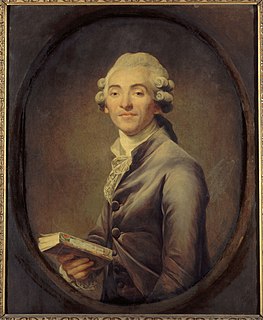 W
WBernard-Germain-Étienne de La Ville-sur-Illon, comte de Lacépède or La Cépède was a French naturalist and an active freemason. He is known for his contribution to the Comte de Buffon's great work, the Histoire Naturelle.
 W
WAlexandre-Théodore-Victor, comte de Lameth was a French soldier and politician.
 W
WCharles-François Lebrun, 1st duc de Plaisance, was a French statesman who served as Third Consul of the French Republic and was later created Arch-Treasurer and Prince of the Empire by Napoleon I.
 W
WCharles, comte Lefebvre-Desnouettes or Lefèbvre-Desnoëttes became a French officer during the French Revolutionary Wars and a general during the Napoleonic Wars. He later emigrated to the United States.
 W
WFrançois Joseph Lefebvre, Duc de Dantzig, was a French military commander during the Revolutionary and Napoleonic Wars and one of the original eighteen Marshals of the Empire created by Napoleon.
 W
WLouis-Mathieu Molé, also 1st Count Molé from 1809 to 1815, was a French statesman, close friend and associate of Louis Philippe I, King of the French during the July Monarchy (1830–1848).
 W
WGabriel-Jean-Joseph, 1er Comte Molitor, was a Marshal of France.
 W
WJean-Pierre Bachasson, Seigneur et 1er Comte de Montalivet was a French statesman and Peer of France. He was the father of Camille Bachasson, 3rd Count of Montalivet, Minister of the Interior under Louis-Philippe.
 W
WCharles-Antoine-Louis-Alexis Morand Comte de l'Empire, was a general of the French army during the French Revolutionary Wars and Napoleonic Wars. He fought at many of the most important battles of the time, including Austerlitz, Borodino and Waterloo.
 W
WAdolphe Édouard Casimir Joseph Mortier, 1st Duke of Trévise was a French military commander and Marshal of the Empire under Napoleon I, who served during both the French Revolutionary Wars and the Napoleonic Wars. He was one of 18 people killed in 1835 during Giuseppe Marco Fieschi's assassination attempt on King Louis Philippe I.
 W
WGeorges Mouton, comte de Lobau was a French soldier and political figure who rose to the rank of Marshal of France.
 W
WNicolas Marie Quinette, Baron de Rochemont was a French politician.
 W
WComte Pierre Louis Roederer was a French politician, economist, and historian, politically active in the era of the French Revolution and First French Republic. Roederer's son, Baron Antoine Marie Roederer (1782–1865), also became a noted political figure.
 W
WAnne Jean Marie René Savary, 1st Duke of Rovigo was a French general and diplomat.
 W
WLouis Philippe, comte de Ségur was a French diplomat and historian.
 W
WEmmanuel-Joseph Sieyès, usually known as the Abbé Sieyès, was a French Roman Catholic Abbé, clergyman, and political writer who was a chief political theorist of the French Revolution (1789–1799); he also held offices in the governments of the French Consulate (1799–1804) and the First French Empire (1804–1815). His pamphlet What Is the Third Estate? (1789) became the political manifesto of the Revolution, which facilitated transforming the Estates-General into the National Assembly, in June 1789. He was offered and refused an office in the French Directory (1795–1799). After becoming a director in 1799, Sieyès was among the instigators of the Coup of 18 Brumaire, which installed Napoleon Bonaparte to power. Moreover, apart from his political life, Sieyès coined the term "sociologie", and contributed to the nascent social sciences.
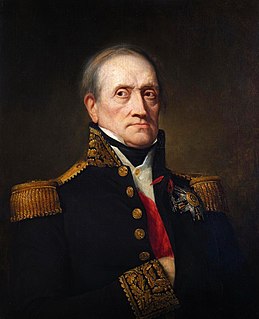 W
WMarshal General Jean-de-Dieu Soult, 1st Duke of Dalmatia, was a French general and statesman, named Marshal of the Empire in 1804 and often called Marshal Soult. Soult was one of only six officers in French history to receive the distinction of Marshal General of France. The Duke also served three times as President of the Council of Ministers, or Prime Minister of France.
 W
WLouis-Gabriel Suchet, Duke of Albufera, was a French Marshal of the Empire and one of the most successful commanders of the French Revolutionary and Napoleonic Wars.